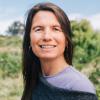Publications
-
Chapters in Peer-Reviewed Edited Books
2017. Getting Dirty: the Ecoeroticism of Women n Native Oral Literatures. For Critically Sovereign: Indigenous Gender, Sexuality, and Feminist Studies. Edited by Joanne Barker. Duke University Press.
2016. Linking Ancestral Seeds and Waters to the Indigenous Places we Inhabit. Co-authored with Nicola Wagenberg. For Ecological and Social Healing: Multicultural Women’s Voices, edited by Jeanine Canty. New York, NY: Routledge Press.
2016. “Indigenous Ecological Traditions in North America.” For Handbook of Religion and Ecology. Edited by John Grim and Mary Evelyn Tucker. New York, NY: Routledge Press.
2015. Indigenous Science and Traditional Ecological Knowledge: Persistence in Place. In The Indigenous World of North America. Edited by Robert Warrior. Routledge.
2013. Protecting the Sanctity of Native Foods. Is Sustainability Possible? State of the World 2013. Edited by Erik Assadourian and Thomas Prugh. Washington: Island Press.
2013. The Hydromythology of the Anishinaabeg: Will Mishipizhu Survive Climate Change or is he creating it? In Centering Anishinaabeg Studies: Understanding the World Through Stories, edited by Jill Doerfler, Niigonwedom James Sinclair and Heidi Kiiwetinepinesiik Stark. East Landing: Michigan State University Press.
2011. [Reprint]. Becoming Metis. The Colors of Nature: Culture, Identity, and the Natural World. Edited by Alison Deming and Lauret Savoy. Milkweed Editions.
2009. Indigenous Religions – North America. In The Encyclopedia of Sustainability, VI: The Spirit of Sustainability. Edited by Willis Jenkins. Berkshire Publishing, Great Barrier, MA.
2008. Rivers of Memory, Lakes of Survival: Native American Water Traditions and the Anishinaabeg Nation. In Deep Blue: Critical Reflections on Nature Religion and Water. Edited by Sylvie Shaw & Andrew Francis. Equinox Publishing, London, England.
2006. Oral Tradition, Identity, and Inter-generational Healing Through the Southern Paiute Salt Songs. In Cultural Representation and Contestation in Native America. Edited by Andrew Jolivette. Berkeley: AltaMira Press.
2001. Contemporary Native American Responses to Environmental Threats in Indian Country. Co-authored with Dr. Tirso Gonzales. In Indigenous Traditions and Ecology – The Interbeing of Comology and Community. Edited by John Grim, Center for the Study of World Religions, Harvard University Press.
2001. Constructing a Confluence: Water Stories and the Restoration of an Urban Watershed. In Writing on Water. Edited by David Rothenberg and Marta Ulvaeus, MIT Press.
1999. [Reprint] Becoming Métis. In At Home on the Earth - Becoming Native to our Place. Edited by David Landis Barnhill, University of California Press.
-
Peer-reviewed Journals
2011. The Future of Native Studies: A Modest Manifesto. The American Indian Culture and Research Journal, 35:1 (2011).
2008. More Than One Mask: The Context of NAGPRA for Museums and Tribes. Co-authored with Edward M. Luby. The American Indian Culture and Research Journal, 32:4 (2008) 85 – 105.
2006. Ravens, Storms, and the Ecological Indian at the National Museum of the American Indian. Wicaso Sa Review, 21, no. 2.
2002. Introduction: Indigenous Language Revitalization. Nelson, Melissa, executive editor, ReVision Journal, Washington, D.C., Fall, 2002, Volume 25, Number 2, 3 - 4.
2002. Moyla Tuupanga: The Moon Is in the Sky: An interview with L. Frank Manriquez. Nelson, Melissa. ReVision Journal, Washington, D.C., Fall, 2002, Volume 25, No. 2, 39 – 48.
2002. Storyscapes: Living Songs in Native Lands. Co-authored with Philip Klasky. ReVision Journal, Washington, D.C., Fall, 2002, Volume 25, Number 2, 11 – 18
1998. A Psychological Impact Report for the Environmental Movement. ReVision, Spring. Vol. 20(4): 37-43.
1995. San Francisco Bay Area Coalition Forms Bonds Between Native Americans and Non-Native Restorationists. Co-authored with Emily Schwalen. Restoration and Management Notes 12(2): 243-244.
1993. Our Modern Challenge: Exploring Alternatives Through Dialogue and Ecological Responsibility. The Trumpeter - Journal of Ecosophy 10 (2): 57-59.
1991. An Exploration of Intuition: Its Relationship to the Deep Ecology Movement & Ecosophy. The Trumpeter - Journal of Ecosophy 9 (2): 83-84.
-
Popular Magazines
2015. “Return to the Native: Inside the Indigenous Movement of Resistance and Restoration,” Earth Island Journal, Vol. 30, No. 3. I served as guest editor for this special issue and co-authored one article, “Revitalizing Native Foodways,” with Kaylena Bray.
2013. “Wild and Cultivated Foods and Communities: A Collaboration.” Co-authored Wendy Johnson. Whole Communities Journal, Fayston: Vermont. Center For Whole Communities.
2011. Red and Green: The Merging of the Indigenous and Environmental Movements and the Renewal of Traditional Ecological Knowledge. Green Fire Times, August 2011.
2010. Cutting-edge Brower Center Honors Ohlone Ancestors in Blessing Ceremony. News From Native California, Vol. 23 (3), Spring.
2005. The Salt Song Trail. Co-authored with Philip M. Klasky. News From Native California, Vol. 18(4), Summer.
2004. Health and Ecology of Indigenous California Foods and the Bay Nut. The Snail. Slow Foods USA Newsletter, May 2004.
2001. Storyscape: the power of song in the protection of native lands. Co-authored with Philip Klasky. Orion Afield, Autumn, Vol. 5(4), 22-25.
1998. To Help Us Be Human: An Interview with Malidoma Somé. Orion Magazine, Vol. 17(3), Summer: 13-16.
1997. Becoming Métis. Orion Magazine, Vol. 16(2), Spring: 62-64.
1995. Guidelines for Biodiversity Collections: A look at the issues. Abya Yala News 8 (2): 19-20.
1993. Book Reviews for David Rothenberg’s Is it Painful to Think? and Wisdom in the Open Air: The Norwegian Roots of Deep Ecology. Orion Magazine, 12(4), Autumn.
-
Community Newsletters
2004. NAGPRA In Context: Report on a Workshop for Native American Tribes & Museums. Co-authored with Edward M. Luby. Roots & Shoots. California Indian Basketweavers Association, Newsletter #43, Summer/Fall 2004.
1994. Reclaiming an Indigenous Mind. The Ecopsychology Newsletter, Issue 2, Fall.
1998. Original Stakeholders of the Presidio: The Muwekma Ohlone Tribe. Presidio of San Francisco Environmental Newsletter, U.S. Department of Army, July, Volume 13.
-
Online Journals
2015. A Kaleidoscope of Hope: Indigenous Knowledge Helping Mend the Nature-Culture Divide. The Interfaith Observor. http://theinterfaithobserver.org/all-about-tio/
-
Edited Reports
1995. Ecopsychology in Theory and Practice. In Fideler, D. (ed.). Alexandria - Journal of the Western Cosmological Traditions. Grand Rapids: MI: Phranes Press.
